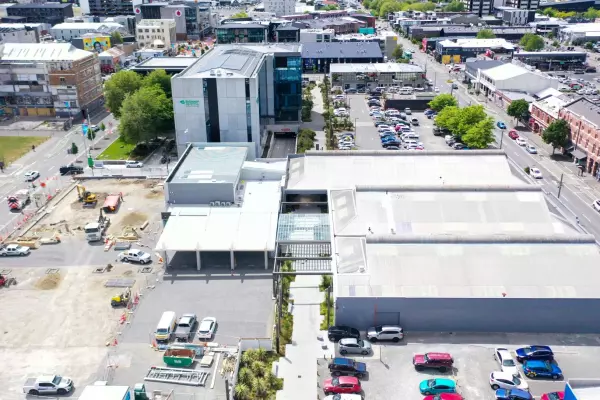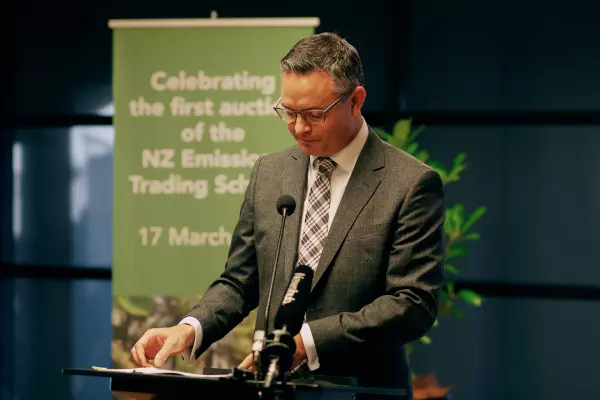New Zealand reportedly has the best government procurement in the world. Not so, say business leaders.
Each year, government agencies spend about $51.1 billion procuring goods and services, a huge spend equivalent to about 20% of GDP.
Procurement across government is led by the super-ministry, Ministry of Business, Innovation and Employment (MBIE). Its NZ Government Procurement (NZGP) team provides procurement advice and support to public agencies and issues guidance on the standards officials are meant to follow when deciding how to spend taxpayer dollars.
Judging by our international reputation, it seems to work fairly well.
A 2019 benchmarking index by Oxford University’s Blavatnik School of Government named New Zealand as having the best government procurement practices in the world. The report praised the use of e-procurement, which is done through MBIE's GETs website, as a particular highlight.
But closer to home, the outlook isn’t nearly as rosy.
Only 33% of businesses taking part in the most recent NZGP survey were positive about the overall quality of government procurement. Officials didn't survey business leaders in 2020, and the 2021 results likely will be out next month.
Ian McCrae is the chief executive of Orion Healthcare, a health software provider which had a well-publicised run-in with the Ministry of Health this year over the procurement of a covid-19 immunisation register.
Orion deals with government procurement processes around the world, and McCrae said there is no way New Zealand should be ranked near the top.
“In fact, I would suggest it’s somewhere near the bottom for a developed country," he said. “It’s woeful.”
After Orion lost out on the covid-19 contract, McCrae lodged a complaint with the Office of the Auditor-General (OAG) about how the ministry handled the procurement. Orion wasn’t given a fair shot, he alleged, despite being able to provide a cheaper solution.
OAG wasn’t convinced (McCrae took issue with the investigation), but in a letter released this month, the auditor-general took aim at the ministry over its procurement of a different service: saliva testing. The scathing review found multiple poorly managed conflicts of interest, no formal procurement plan and failure to appoint a sufficiently independent probity auditor.
Having someone independent sit in and evaluate a procurement process is common practice in some overseas markets, McCrae said. It ensures potential suppliers were treated equally and had access to the same information.
On its website, MBIE says buyers might consider having an independent auditor for complex, high risk or major procurements, but the rules don’t make this compulsory.
Agencies are, however, required to follow the rules and run open and competitive processes for spending over $100,000. There are some exemptions – including sourcing during an emergency – but for the most part, opportunities should be openly advertised. McCrae believes there should be more enforcement and compliance to ensure this is the case.
Officials had been given a “crazy amount of freedom to just avoid procurement processes” or have closed tenders, McCrae alleged.
“When was the last time MBIE made a government agency go back and review a procurement? To my knowledge, that’s never happened.”
According to the rules, suppliers who feel they’ve been poorly treated can seek redress from a range of bodies, including OAG, the Ombudsman, the Public Service Commission and the courts.
Procurement system reset
MBIE is in the process of “resetting the procurement” system, according to its website, including collecting more data to bolster transparency and ensure procurement policies are being met.
To help achieve this, the agency is developing an “assurance roadmap”, due for completion next April. NZGP also plans to provide more support and guidance to agencies.
MBIE declined to offer anyone for an interview, but in a statement, a spokesperson characterised New Zealand’s government procurement system as centre-led and rules-based. Government agencies have individual authority, meaning it’s up to them to interpret and apply the rules.
NZGP doesn't have any regulatory or inspectorate powers, but the spokesperson said MBIE can step in to informally mediate disputes between suppliers and buyers. If a complaint arose during a live procurement process, in exceptional circumstances MBIE could recommend the agency delay, restart or suspend the process.
Dr Barbara Allen, a procurement expert and senior lecturer at Victoria University of Wellington, said different agencies have different degrees of procurement expertise. She acknowledges an increased focus on upskilling officials in recent years.
“New Zealand has a very good procurement system for its particular context,” she said.
There is possibly “more room for checks and balances”, Allen said, but any extra compliance needs to be weighed up against the current system’s flexibility.
Government procurement had for a long time been focussed on competition and achieving the lowest price, Allen said, adding that we're now headed towards a better balance that considers things like social and environmental outcomes.
Progressive procurement
In 2019, the government updated the procurement rules to direct agencies to consider broader outcomes in their purchasing. The four new considerations include access for New Zealand businesses, improving conditions for workers and moving to net-zero emissions and reducing waste.
MBIE is unable to provide any new data assessing how the broader outcomes are working, but a survey of 120 agencies last June found 70% were factoring in the new environmental and local business access outcomes into their procurement decisions.














